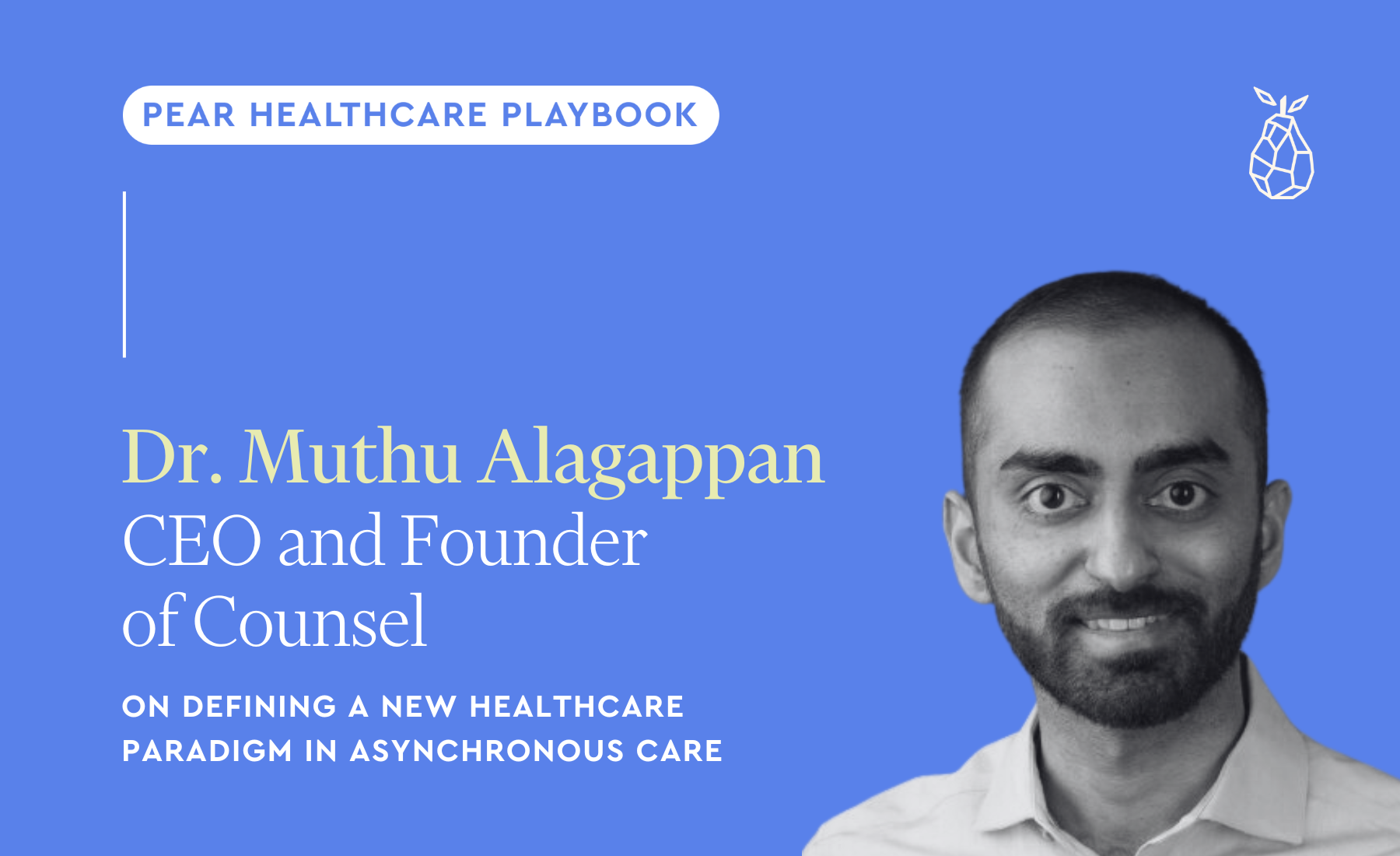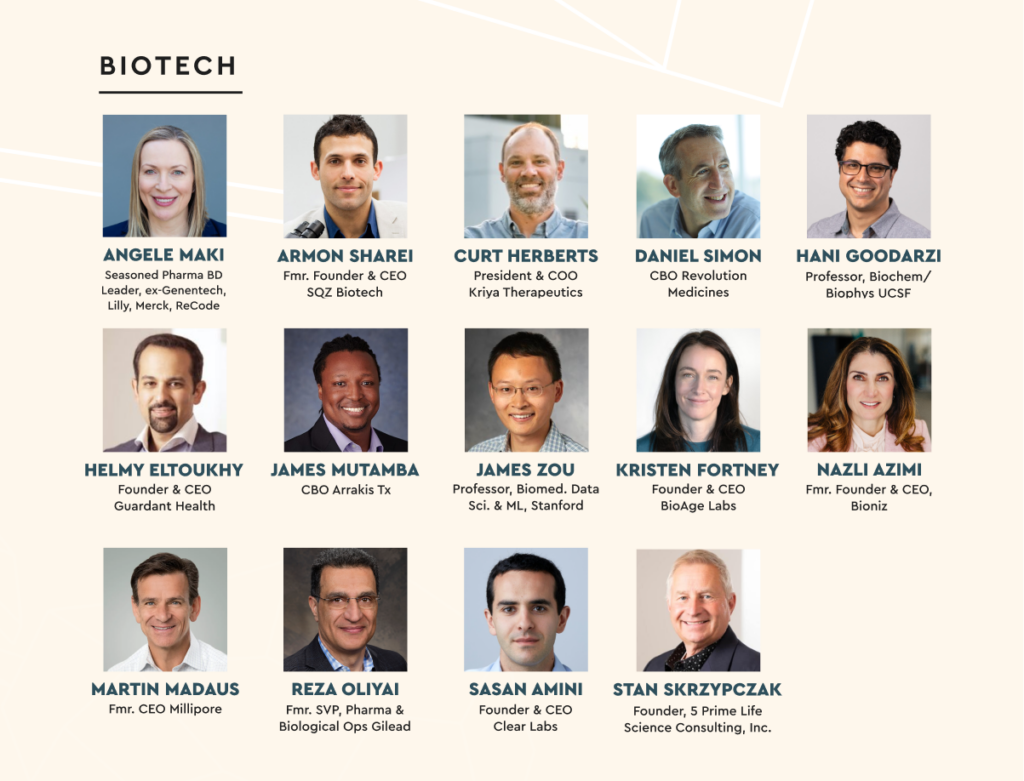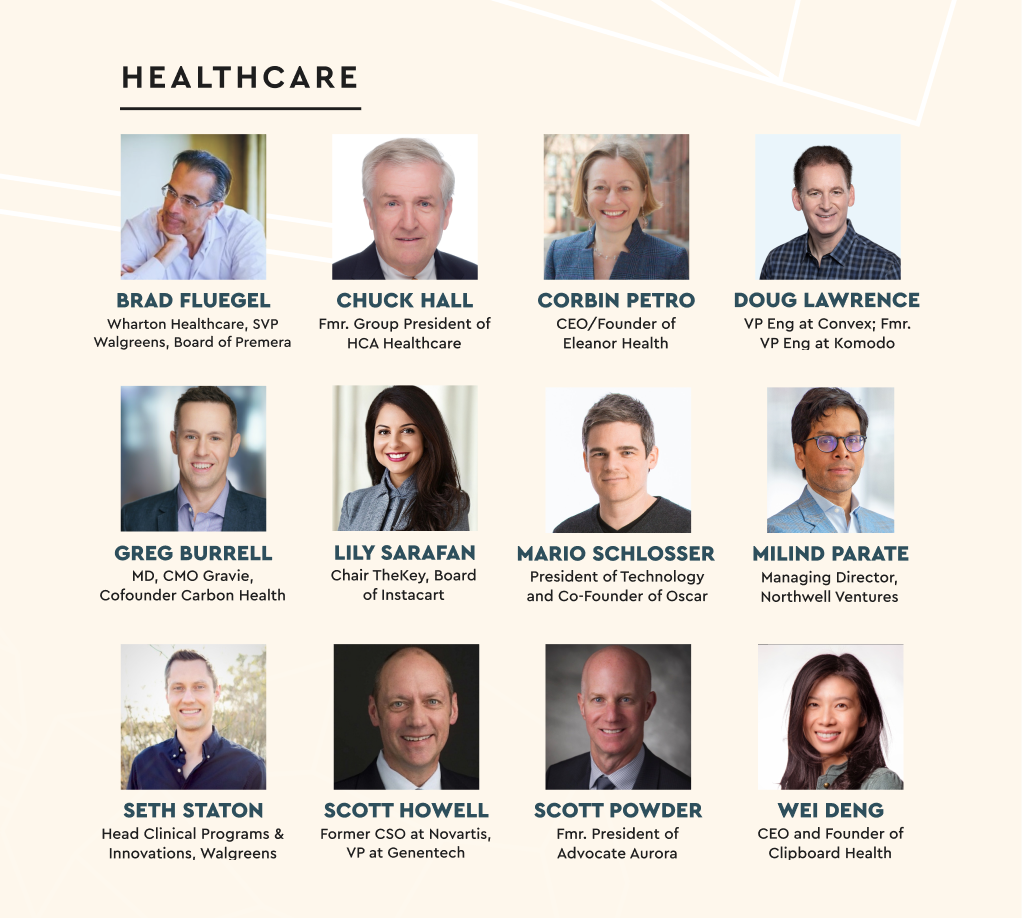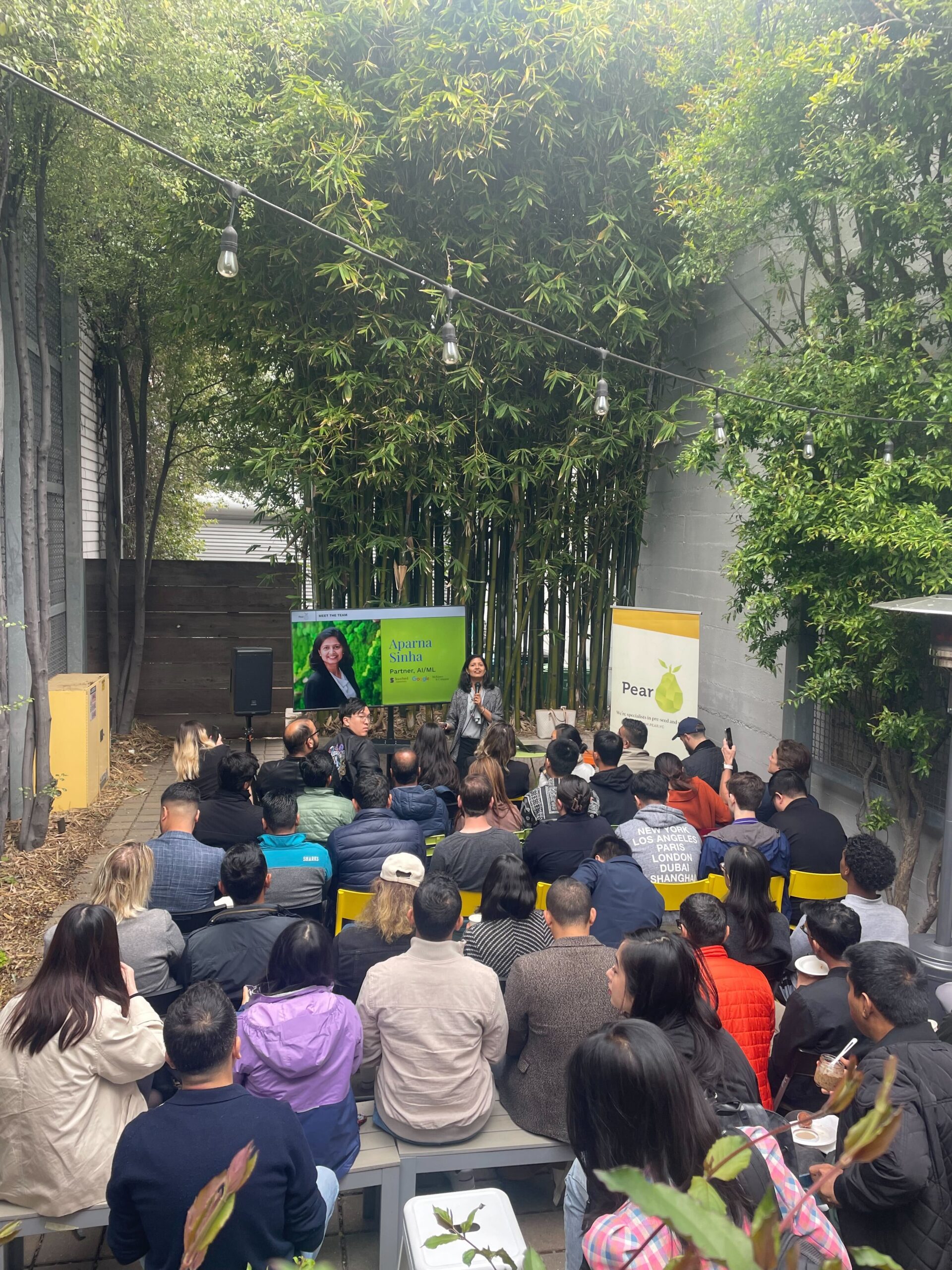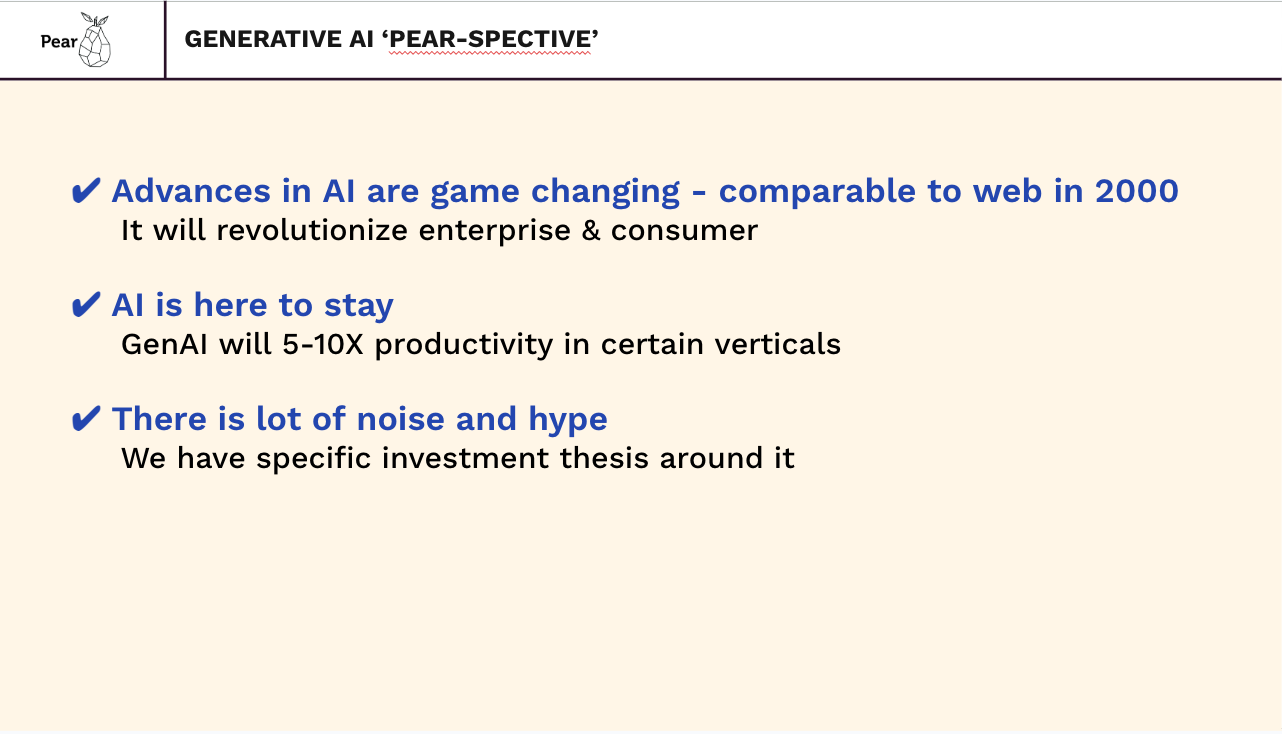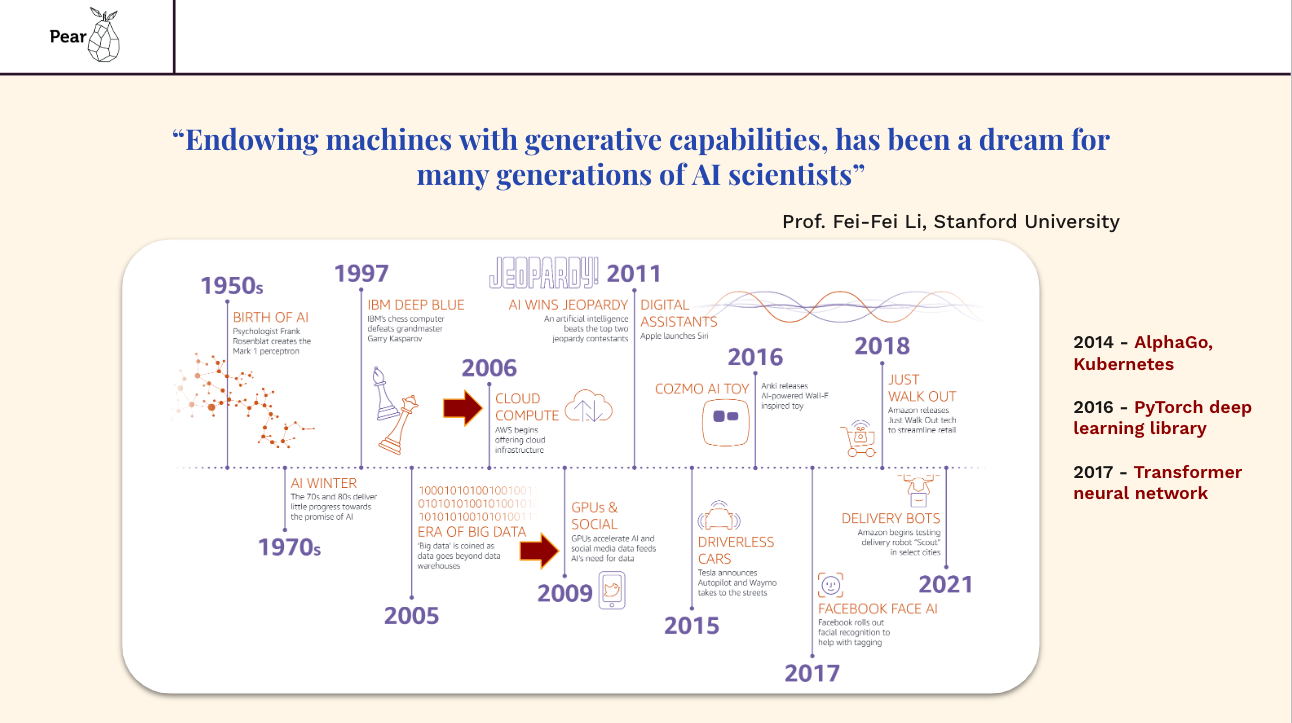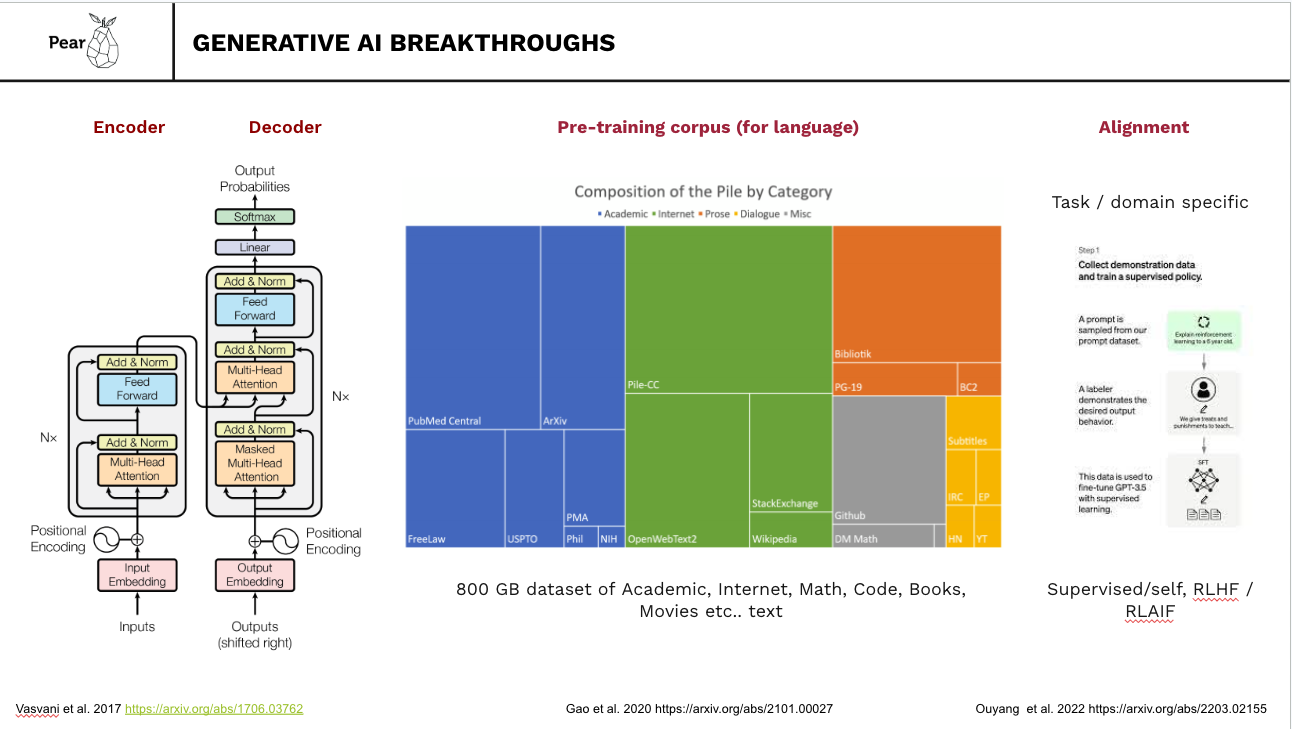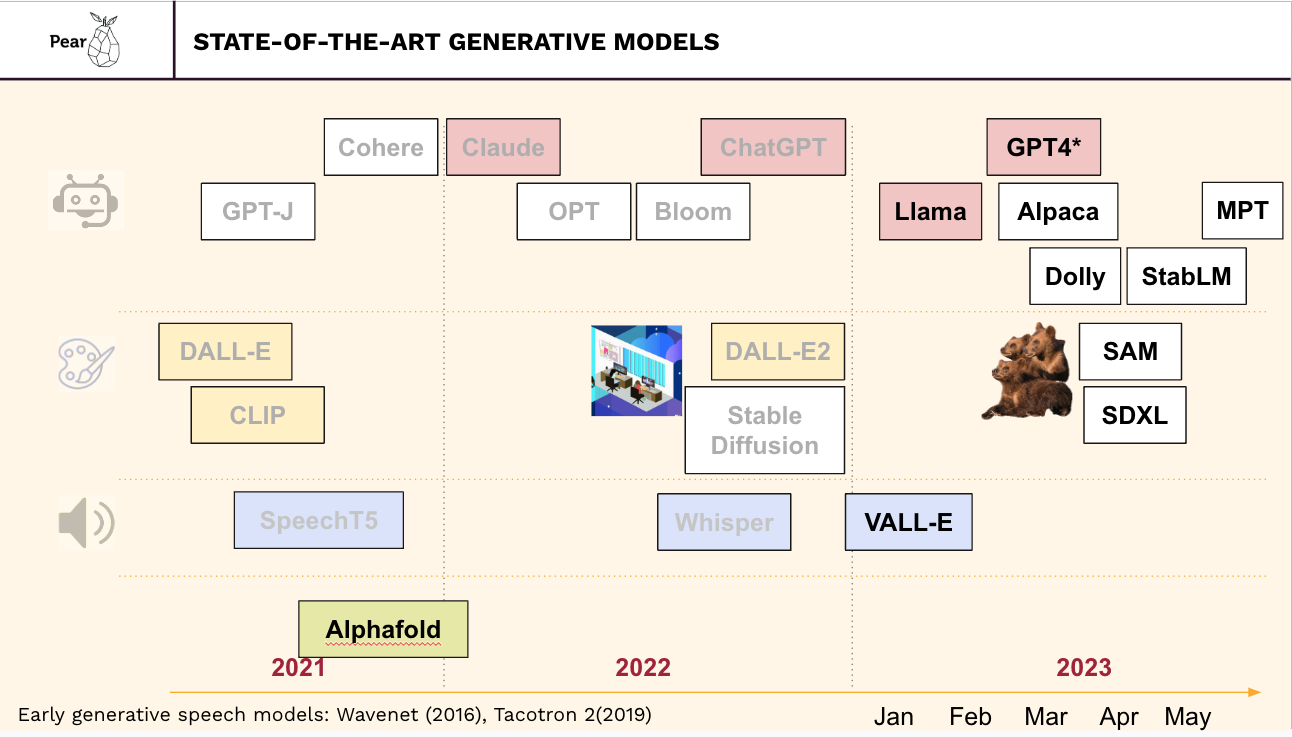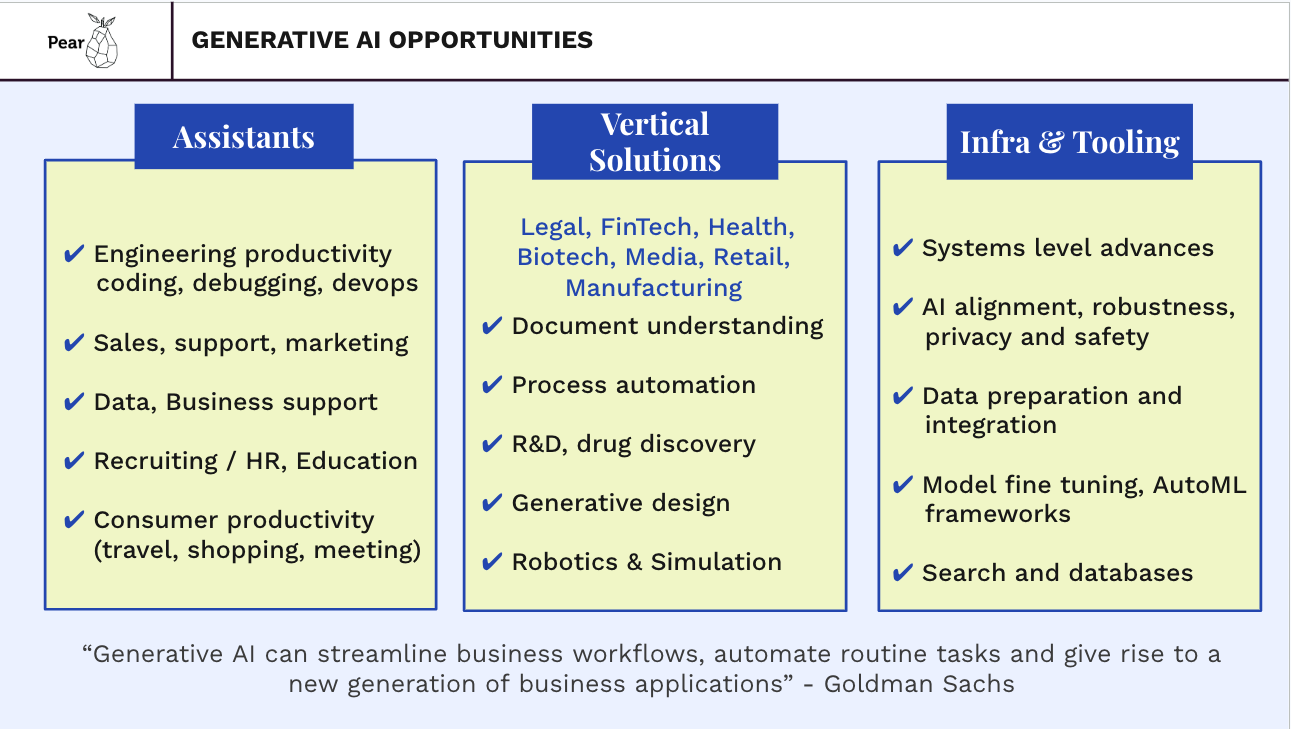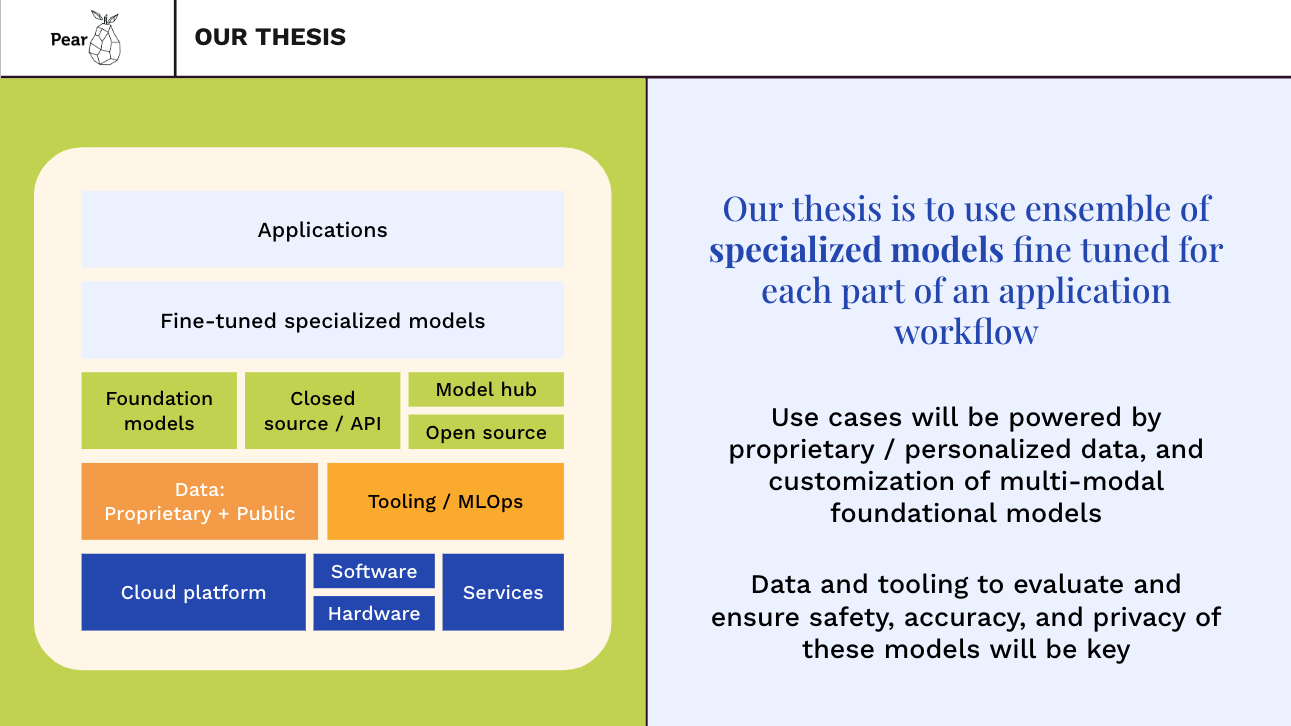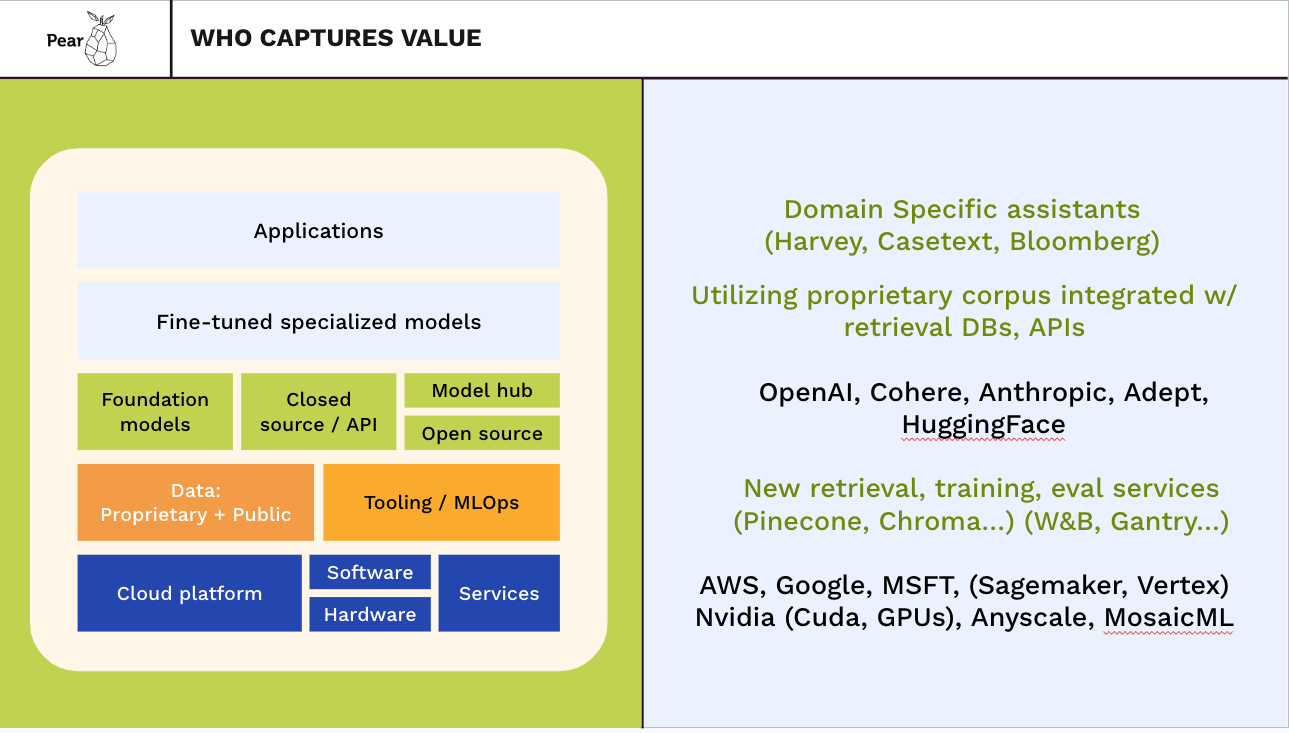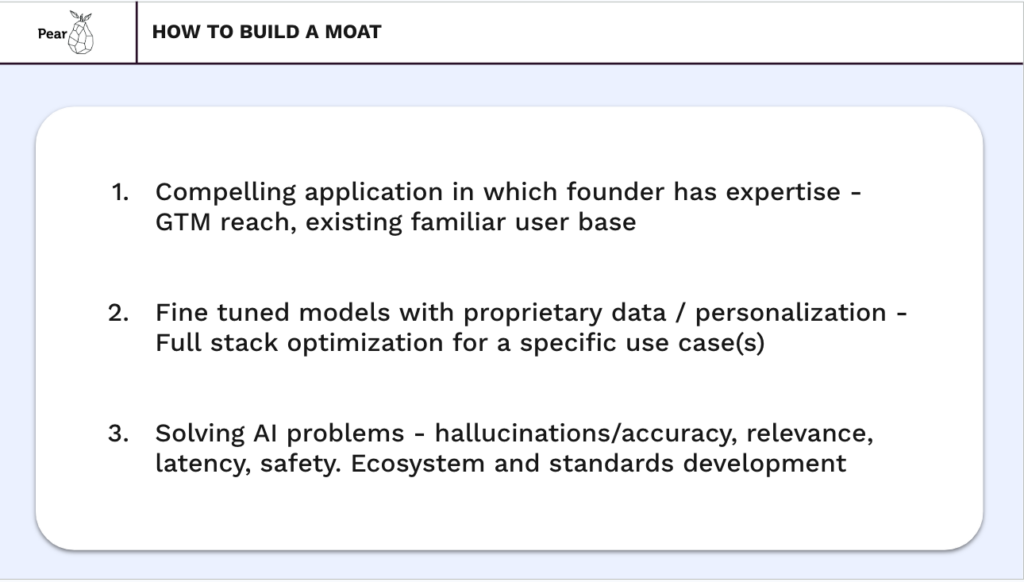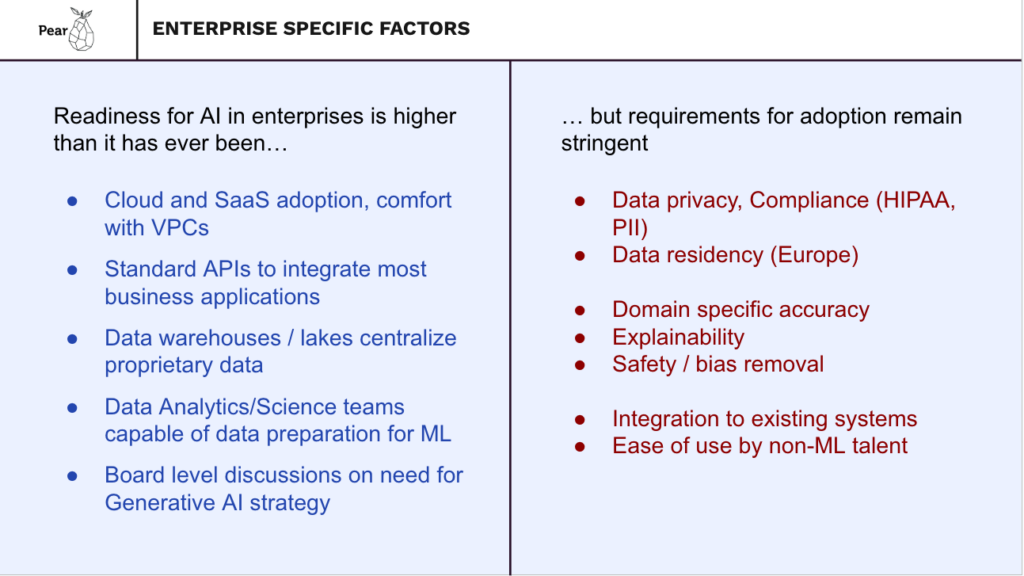Today, excited to get to know Dr. Muthu Alagappan, CEO and Founder of Counsel, the modern solution for access to care.
Before founding Counsel, Muthu was the CMO of Notable Health for almost 4 years and was an Attending Physician at Beth Israel Deaconess Medical Center and UCSF Medical Center. He graduated with his MD from Stanford Medicine and (fun fact!) was also the Student Commencement Speaker for his graduating class.
Founded in 2023, Counsel provides patients with high-quality, personalized medical advice from expert doctors within minutes. Counsel recently announced $11M in seed funding from investors like A16z, Floodgate, Asymmetric Capital and Pear VC! We at Pear VC are proud to be partners to Counsel!
If you prefer listening to the podcast, here is the recording.
Muthu’s Background and Career Path
- Starting from early childhood, Muthu always had a dual interest in both technology and healthcare, influenced by his physician father and growing up in Houston, Texas, which is the world’s biggest medical center. When Muthu arrived at Stanford for undergrad, it was an amazing place where Stanford really thrived on cross-pollinating ideas across different domains from medicine to art and humanities to AI. He learned that having multiple domains of experiences is a super valuable combination. Stanford had a really popular concept of being a “T-Shaped” person, the idea of having a depth of experience in one area, with the ability to connect that experience across multiple domains. This “T-Shape” concept really stuck with Muthu, which became a big focus of his to develop a deep expertise in one area but still maintain connectivity and knowledge in others. As he has evolved in his career, he admits that he’s more of an “H-Shaped” person now, having two domains of expertise, connecting both artificial intelligence and clinical medicine. He shares that we are starting to see industries are starting to collide in ways they haven’t before.
- Throughout his career, Muthu has always had a contrarian underdog mentality.
“What do we believe today that won’t be true in the future? What are paradigms that today feel ubiquitous but in the future may change?”
This led him to pursue opportunities and companies where people were excited to change those paradigms. Muthu was drawn to Notable in 2019 on using AI to supercharge administrative workflows, which was more of a contrarian of an idea back then, now ubiquitous and seems obvious today. Muthu served as Chief Medical Officer at Notable for almost 4 years, supporting some of the biggest health systems in the country. Today, Muthu has shifted to a new paradigm in asynchronous care with Counsel.
Founding Story of Counsel
- Muthu shared that founding a company was a major decision—one he approached with years of careful thought, aiming to achieve a true alignment between his expertise and a meaningful, impactful problem. His commitment to healthcare stems from understanding that success in this field demands a blend of AI proficiency, clinical medicine insights, and go-to-market strategy—all essential and deeply interwoven in healthcare innovation.
- Counsel specifically addresses the urgent issue of healthcare access. In the U.S. and globally, we’re confronting a critical shortage, with the healthcare system on track to face a gap of 100,000 clinicians within the next 5-10 years, if not sooner. This shortage already reflects in long wait times, averaging 40 days to see a primary care physician in most cities. As a result, many patients turn to Google for medical advice, often leading to decisions that strain the healthcare system and negatively impact their own outcomes, such as unnecessary ER visits or unneeded MRIs.
- Muthu explains that Counsel offers immediate, trusted medical guidance from real doctors through asynchronous messaging, providing advice within minutes to help patients make informed decisions and reduce unnecessary visits. As a virtual medical practice, Counsel reimagines how people access care, enabling patients to consult a doctor right from their phone, anytime they have a question. It’s like having a doctor in the family, ready to provide insights and support at a moment’s notice—ultimately improving access and enhancing the care experience.
“Growing up with a physician parent and physician myself, I know the magical feeling of having instant trusted advice anytime you need it about your health. How do we democratize that magical feeling to everyone through Counsel?”
Counsel’s Business Model and Go-to-Market Strategy
- Counsel is designed to build the best experience possible for patients that is extremely scalable through the use of AI. Counsel has developed a “clinician cockpit”, also referred internally as the Ironman Suit for Counsel’s doctors to enable efficient asynchronous care delivery in a high quality and efficient manner, which makes it possible to deliver care to patients as the ultimate users.
- New care model design really benefits all key stakeholders in the systems. Counsel partners with large health plans and at-risk provider groups to distribute the service, which benefits multiple stakeholders: insurers (avoid unnecessary ER visits), patients (better access to care), and health systems (reduced inbox burden, a pandemic on it’s own, and the right patients coming to their clinics).
Muthu’s advice to startup founders on navigating GTM:
- Muthu emphasizes that early go-to-market efforts in healthcare can be challenging without prior industry experience. He recommends bringing in an expert who understands healthcare incentives and partnerships early on, as the sales cycles in healthcare are lengthy and complex. It’s essential to address a pressing problem—one that is top-of-mind for your champion. If it’s only their second or third priority, the opportunity may not have as strong a foundation for success.
- Muthu advises taking the time to find partners whose mission truly aligns with yours—like selecting the right lifeboat to reach the next big island. He emphasizes the value of finding long-term champions who are deeply invested in your success. For Counsel, this meant using an “echolocation” approach, engaging in wide-ranging conversations to identify what resonated most and led to meaningful alignment.
Advocating for Asynchronous Care as a Specialty
- Counsel recently published an opinion piece in STAT, advocating for asynchronous care to be recognized as its own specialty. This push aligns with findings from the Corewell study in NEJM, which highlighted the effectiveness of dedicated “inboxologists” in managing patient messages. The study demonstrated notable benefits, including faster response times and more efficient triage of patient needs.
- Muthu notes that patient behavior is shifting decisively toward messaging-based care and medical advice. Over several consecutive years, inbox messaging rates have nearly doubled annually, underscoring that asynchronous, text-based communication is rapidly becoming the preferred way people engage with healthcare.
“The last 100 years has been about in-person and video-based care, the next 100 years will likely be about messaging.”
- Most providers currently treat messaging as an optional, add-on service, offering responses when possible but without a dedicated focus. But what if we made messaging-based care a specialized role? By doing so, we could provide high-quality, consistent asynchronous care, unlocking significant benefits for both patients and the healthcare system. Asynchronous care is particularly well-suited to many conditions, allowing ongoing monitoring at a low cost.
- Counsel is at the forefront of this movement, defining, designing, and developing the right clinical protocols, optimized provider interfaces, and quality metrics specifically for asynchronous care. We’re thrilled that Counsel is leading the way in establishing asynchronous care as a recognized specialty.
What other healthcare paradigms will continue to change in the next decade?
- Muthu is energized by the shifting paradigms in healthcare that are making the field more patient-centered rather than provider-centered. For instance, the current structure of medical specialties is designed around provider needs, often leading to confusion for patients. Muthu envisions a future where Counsel moves away from provider-centric structures, like specialties and “encounter-based” care, in favor of models that focus on the patient’s specific needs, creating a truly patient-first approach.
- He’s also highly optimistic about generative AI’s transformative potential in healthcare, especially in streamlining administrative tasks to make the experience simpler for both patients and providers. While early advancements are likely to emerge in automating referrals, prior authorizations, provider templates, and scheduling, Muthu believes the most profound impact of AI will ultimately be on clinical care. He notes that while clinical applications face hurdles due to regulatory and safety requirements, as well as misaligned financial incentives, Counsel has developed a model that aligns all stakeholders to support these innovations.
- In the broader context, Muthu sees immense promise in AI for life sciences, with potential breakthroughs in accelerating drug discovery and advancing personalized medicine. He’s hopeful that Counsel, along with other clinical AI pioneers, will help drive transformative changes in how AI is integrated into patient care.
Building a Team for an Early-Stage Healthcare Startup
- Muthu seeks individuals who thrive in early-stage environments, as it requires a unique skill set and mindset. Strong mission alignment is essential. Counsel has built a lean, talented team unified around the mission, and they’re always on the lookout for those passionate about healthcare, AI, and startup growth.
- The team is primarily composed of full-stack engineers, AI/ML engineers, researchers, and product managers, but they’re open to any roles for people who are energized by Counsel’s mission and stage. Explore the open roles: https://jobs.ashbyhq.com/counsel!
Rapid Fire questions:
- Listen to the episode on what people are surprised to find out and other pieces of advice from Muthu in our rapid fire questions at the end.
Sponsor note: This is the Pear Healthcare Playbook podcast. This season is brought to you by Banc of California. Banc of California partners with leaders to help them identify the right products and services for their business needs.
